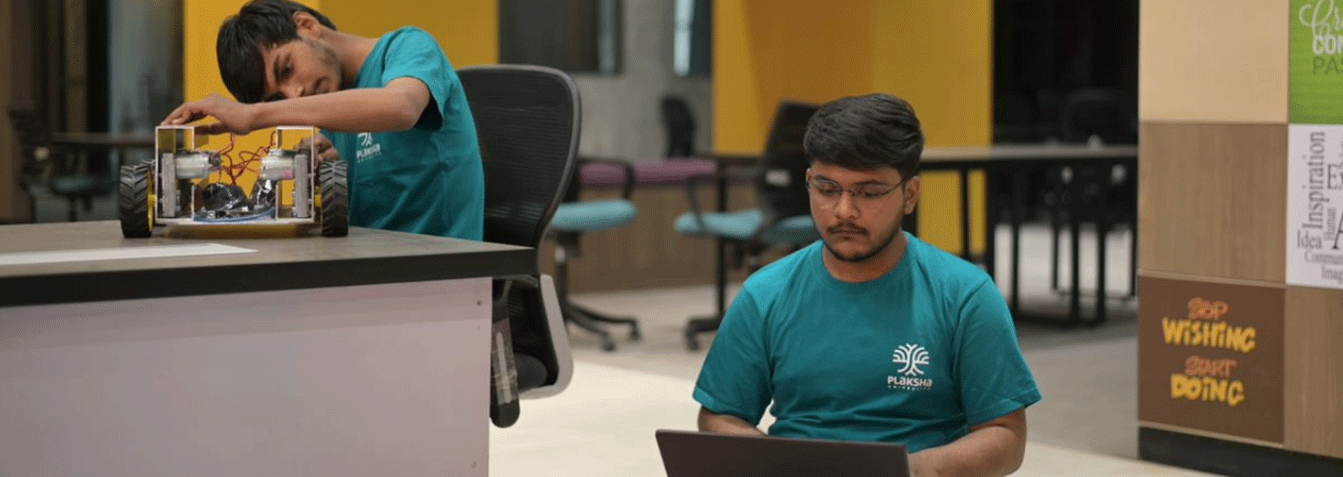Sign up for Online Meets here. | View Academic Calendar 2023-24 here. | Admissions to BTech 2024 are now open | BTech round 4 application deadline is April 30 | TLF will be relaunched as a Master's program in 2025| Calling talented PhD scholars and postdoctoral fellows in the US to meet us. Register here| Work at Plaksha
ACADEMIC PROGRAMS
Plaksha offers interdisciplinary and cutting-edge technology programs from Undergraduate to Ph.D level.
ADMISSIONS
Applying for a program? Learn more about prerequisites and application timelines.
FACULTY
Plaksha's community of faculty comprises of brilliant individuals who are trained at some of the world's best universities.
Careers
We foster multi-dimensional and value-adding partnerships with corporates and ensure superlative career outcomes for our students.
Events
RECENT AND UPCOMING
-

Tech Talent Day
Industry and academia thought leadership get together to drive innovation, fuel progress and make education relevant.
Happening on May 7, 2024 ! -

TLF Alumni Meet
Calling out all Plaksha Tech Leaders Fellowship alumni to mark your calendars for our upcoming meet-up.
Happening on June 1-2, 2024 ! -

Come Meet Us
Founding Vice Chancellor will be travelling to the USA in the coming month for international faculty outreach.
From April 14, 2024 - May 1, 2024 !
BTech students are head boys and head girls of their respective schools, budding entrepreneurs who have founded startups, app developers, national and state level sportspeople, NTSE scholars, Trinity level musicians and record holders in the Guinness Book.

ISC Score: 96.6%
- Head Girl, The Sri Ram School
- Completed Young Tech Scholars Program in 2019
- Among the 50-member YuWaah (a UNICEF initiative)
- Young People’s Action Team
- Created an app that calculated carbon footprint of a person

IB Board: 42/42
- Student Council President, Legacy School
- 100% scholarship at NTU
- Web developer and technology lead
- Wants to work in data privacy and cyber security

CBSE Score: 99%
- National level basketball player
- Wants to transform policy through data and is curious about digital marketing and economics

CBSE Score: 99%
- Author of the book, “The Economics ABC” and started her own baking venture
- Passionate about raising awareness towards improving gender equality




















1669881284.png)
1669881333.png)
























